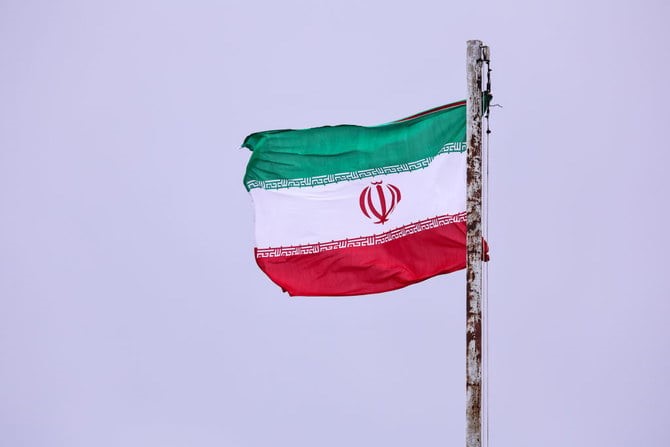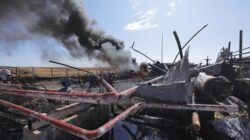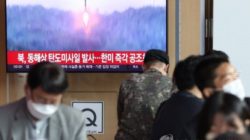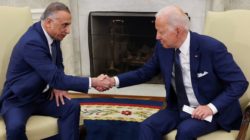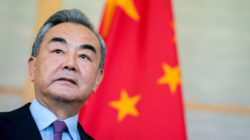WASHINGTON – Iran strongly opposed a request by France, Germany, and the United Kingdom for the United Nations to investigate allegations that Russia deployed Iranian-made drones to attack Ukraine, according to an official IRNA news agency.
Nasser Kanaani called the E-3 group’s Friday call “false and unjustified,” and said it was “strongly rejected and condemned.”
Britain, France, and Germany backed Ukraine’s call for a review on Monday in a letter signed by their UN envoys and obtained by Reuters, alleging that the use of drones violated UN Security Council Resolution (UNSCR) 2231, which endorsed the 2015 Iran nuclear agreement.
Separately, US Secretary of State Antony Blinken stated that while negotiation remains the best approach to rein in Tehran’s nuclear program, there is no hope of reviving the 2015 deal “at this time” due to Iran raising “extraneous” issues.
“With or without a deal, we will continue to take all necessary steps to deal with Iran’s activities, Iran’s aggression, whether in the Middle East or elsewhere,” he said during a press conference with French Foreign Minister Catherine Colonna. “We’re witnessing that right now with the delivery of (drones) to Russia.”
Ukraine claims Russia utilized Iranian-made Shahed-136 attack drones that glide toward their target and explode when they collide.
Tehran denies delivering the drones to Moscow, which Washington rejects, and Russia has denied using Iranian drones to attack Ukraine.
“We would welcome an examination by the UN Secretariat team responsible for monitoring the implementation of UNSCR 2231,” the letter from Britain, France, and Germany, known as the E3.
It was unclear what practical influence such a study would have on Iran or Russia, which could veto any move to impose sanctions as a permanent Security Council member.
UN Secretary-General Antonio Guterres reports to the Council twice a year on the implementation of the 2015 resolution, normally in June and December. Any evaluation of the drones in Ukraine would almost certainly be included in that report.
Another option is that participants in the 2015 nuclear deal, which Iran reached with the UK, China, France, Germany, Russia, and the US, may utilize a UN mechanism to “snap back” sanctions on Tehran.
To initiate “snapback,” a party to the deal, under which Iran curtailed its nuclear program in exchange for relief from economic sanctions, would file a complaint with the Council alleging that Iran violated it.
The Council would then have 30 days to vote on whether to extend Iran’s sanctions remission. If such a resolution is not passed by the deadline, all UN sanctions imposed before to the nuclear deal will be immediately reinstated.
This would necessitate Iran suspending all nuclear enrichment and reprocessing activities, including research and development, as well as prohibiting imports of anything that could contribute to those efforts or the development of nuclear weapons delivery systems.
It would also reinstate a conventional arms embargo, prohibit Iran from producing nuclear-capable ballistic missiles, and reinstate targeted penalties against hundreds of individuals and entities. Countries would also be urged to inspect shipments to and from Iran and would be empowered to seize any prohibited cargo.
“Snapback” would also certainly end efforts to resurrect the 2015 agreement, which then-US President Donald Trump abandoned and which his successor Joe Biden has pushed to renew.
Source: Reuters


